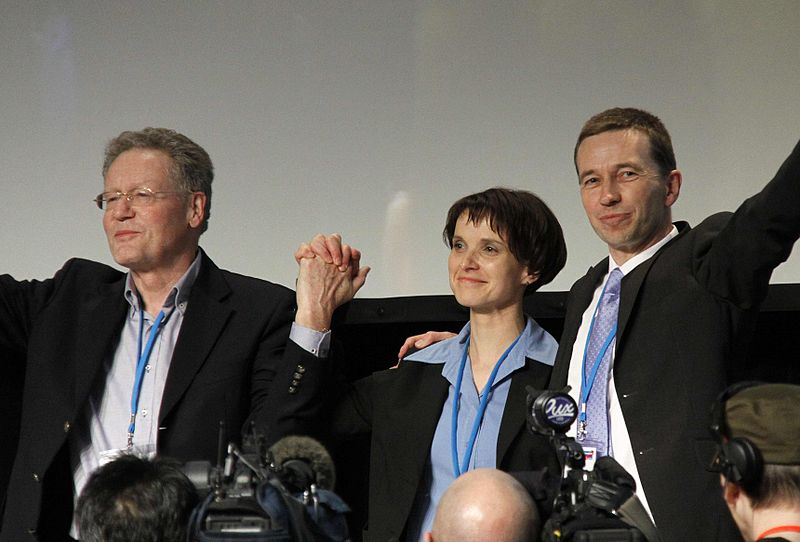
BERLIN (AA & DW.de): Germany’s far-right Alternative for Germany (AfD) adopted a controversial party program Sunday that called for banning Islamic symbols and restricting religious practices of Muslims.
The majority of AfD’s some 2,000 delegates backed the program in a vote after a debate at the party’s national congress held in western Stuttgart city.
The program’s chapter on Islam was titled “Islam does not belong to Germany” and it included various proposals to ban public expressions of Islam.
It demanded a ban on mosque minarets and muezzins’ call to prayer, depicting them as symbols of Islamic power.
It also called for a bar on veils such as the niqab or burka in public, and on headscarves at schools.
The AfD party program also opposed Turkey’s EU membership; it demanded EU reform that gave stronger role to national parliaments, and it called for strong measures to seal off the bloc’s external borders to stop illegal migration.
Aiman Mazyek, who chairs Germany’s Central Council of Muslims, said the Alternative for Germnany’s (AfD’s) “Islamophobic” agenda, including its call to ban minarets, would not help “one jot” to solve problems, but only split German society.
Reacting to the party’s weekend conference in Stuttgart, he told the “Neue Osnabrücker Zeitung” newspaper on Monday that the AfD’s agenda would neither solve social injustices nor repair Germany’s pension system.
The president of Germany’s Central Council of Jews, Josef Schuster, said resolutions passed at the AfD conference made the party’s hostile stance towards religion “crystal clear.”
“With this [manifesto], the AfD has departed from the foundations of our constitution,” Schuster said. The agenda adopted by the AfD amounted to an attempt to “split our society and thwart peaceful coexistence,” he said.
In particular, Schuster said that the AfD’s anti-Islam policy showed the party’s intolerance and disrespect for religious minorities.
Dr. Josef Schuster, president of the Central Council of Jews in Germany.
He described the AfD’s stance opposing the slaughter of animals in line with Islamic and Jewish religious traditions as an attack on Judaism.
“This we should not accept,” Schuster said.
In Berlin, spokespersons for Chancellor Angela Merkel’s conservatives and Vice-Chancellor Sigmar Gabriel’s Social Democrats (SPD) early Monday ruled out any cooperation with the AfD.
Recent polls show that AfD has become the third largest political party in Germany amid growing worries over the refugee crisis and religious extremist attacks in Europe.
A representative poll by the public broadcaster ARD last month showed that the AfD increased its support to 14 percent, leaving behind the Green Party and the Left Party, the two leading opposition parties at the federal parliament.
The AfD, which was founded only three years ago as a protest movement, achieved record support in regional elections in March with an anti-immigration and anti-Islam propaganda.
Germany, which will hold general election next year, has the second-largest Muslim population in western Europe.
Among the four million Muslims in the country, three million are of Turkish origin.
Author Ayhan Şimşek
[Photo: Konrad Adam (left), Frauke Petry and Bernd Lucke during the first Alternative for Germany (AfD) convention on 14 April 2013 in Berlin. Photographer: Mathesar/Creative Commons]